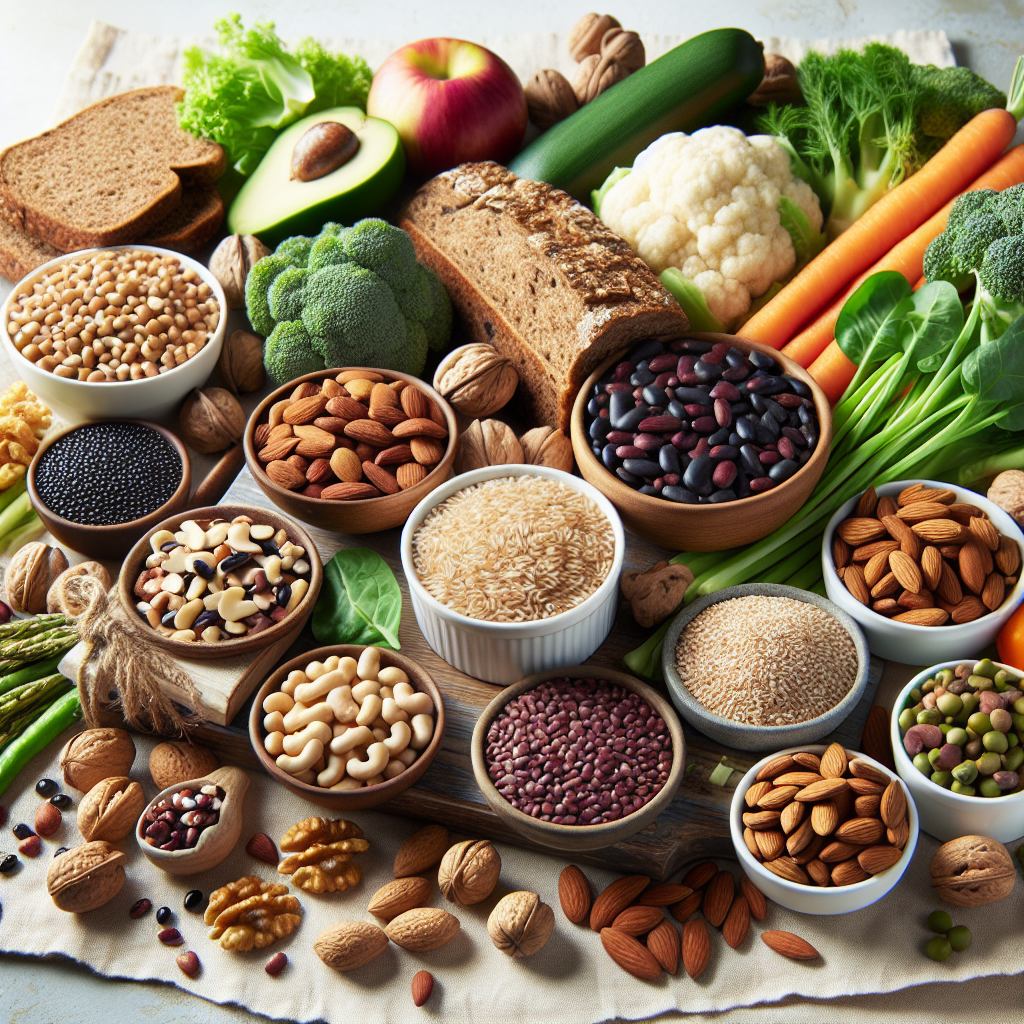The intricate link between diet and health is undisputed, particularly when it comes to the colon, an essential component of the digestive system. A high-fiber diet is often recommended for maintaining overall wellness, but its role in colon health is particularly significant. This article delves into the reasons why fiber is so crucial for our colonic well-being, supported by the most recent scientific findings and expert opinions.
The Importance of Fiber
Fiber, an indigestible part of plant foods, passes through our digestive system, absorbing water, and easing bowel movements. There are two types of fiber – soluble and insoluble. Both types play a role in digestive health, but they do so in different ways. Soluble fiber dissolves in water to form a gel-like substance that can help lower blood cholesterol and glucose levels. Insoluble fiber, on the other hand, helps material move through your digestive system and increases stool bulk.
Dietary fiber intake is associated with numerous health benefits, including a reduced risk of developing coronary heart disease, stroke, hypertension, diabetes, obesity, and certain gastrointestinal diseases. Increased fiber intake has also been shown to lower blood pressure and serum cholesterol levels, improve insulin sensitivity, and enhance weight loss for obese individuals.
Fiber’s Role in Colon Health
The colon, or large intestine, is where the body completes its digestion and absorption process. A high-fiber diet helps keep the colon clear and free of obstructions by promoting regular bowel movements and preventing constipation. This not only aids in maintaining a healthy digestive tract but also reduces the risk of developing colon-related diseases.
Prevention of Colon Diseases
High dietary fiber, particularly from whole grains, is linked to a lower risk of colorectal cancer. Fiber increases stool bulk and decreases transit time, thus reducing the colon’s exposure to carcinogens. Additionally, some types of fiber are fermented by colonic bacteria, producing short-chain fatty acids that have protective effects against colon diseases.
Maintaining a Healthy Microbiome
A high-fiber diet supports a robust and diverse gut microbiota, which is crucial for digestive health. The fermentation of fiber by gut bacteria produces beneficial compounds, like short-chain fatty acids, which provide energy to colon cells and may protect against inflammation and cancer.
Reducing Inflammation
Chronic inflammation in the colon can lead to a variety of health issues. Dietary fiber has been shown to reduce systemic inflammation, which may, in turn, decrease the inflammation in the colon.
Integrating High-Fiber Diets for Optimal Colon Health
To reap the benefits of a high-fiber diet, it is important to consume a variety of fiber-rich foods each day. These include:
- Whole grains like oats, barley, and brown rice
- Legumes such as beans, lentils, and chickpeas
- Vegetables, especially leafy greens, carrots, and cruciferous vegetables like broccoli
- Fruits like apples, berries, and pears
- Nuts and seeds
Dietary Recommendations
The American Heart Association suggests an intake of 25 to 30 grams of fiber per day. However, the average American eats only about 15 grams. To increase fiber intake, one should:
- Choose whole fruits over juice
- Replace white rice, bread, and pasta with whole-grain versions
- Add beans to salads, soups, and entrees
- Include vegetables in every meal
- Snack on fiber-rich nuts and seeds
For those looking to specifically enhance their digestive health, integrating these dietary changes can be a significant step forward.
The Research Behind Fiber and Colon Health
Research published in niche, reputable journals such as the ‘American Journal of Clinical Nutrition’ and ‘Gastroenterology’ often highlights the benefits of high-fiber diets on colon health. For instance, studies have shown that an increased intake of dietary fiber, particularly cereal fiber and whole grains, is associated with a lower risk of colorectal cancer. The protective effects of fiber-rich diets against diverticular disease have also been documented in medical research.
Moreover, clinical trials and population studies outlined in publications like the ‘Journal of Nutrition’ have provided evidence that fiber may play a role in modulating the immune response of the gut, thereby potentially reducing the risk of inflammation-associated diseases.
Practical Tips for Increasing Fiber Intake
For those looking to boost their fiber intake, consider the following practical tips:
- Start your day with a high-fiber breakfast cereal or oats.
- Replace meat with legumes a few times a week.
- Snack on vegetables like carrot sticks, bell pepper strips, or cucumber slices.
- Make a habit of checking food labels and choosing products with higher fiber content.
Challenges and Considerations
While increasing fiber is beneficial, it should be done gradually to allow the gastrointestinal system to adjust. A rapid increase in fiber can lead to bloating, gas, or cramps. It’s also important to consume plenty of water, as fiber works best when it absorbs fluid.
Connecting Fiber with Broader Health Outcomes
While the focus here is on colon health, it’s worth noting that high-fiber diets intersect with broader health outcomes. For instance, fiber’s influence on gut health has implications for brain health, considering the gut-brain axis. Also, the role of fiber in weight management and metabolic regulation ties into broader discussions on fitness and medication & supplements.
Additional Resources
To further explore the connection between high-fiber diets and colon health, readers are encouraged to explore the following resources:
- The role of fiber in colorectal cancer prevention from the American Journal of Clinical Nutrition
- A detailed review of dietary fiber’s effect on digestive health from Gastroenterology
- Insights on the immune response and dietary fiber from the Journal of Nutrition
In conclusion, the evidence supporting high-fiber diets for colon health is compelling. By making informed dietary choices and gradually increasing fiber intake, individuals can significantly benefit their colonic and overall health. Remember to consult with a healthcare provider before making any substantial changes to your diet, especially if you have existing health conditions.



